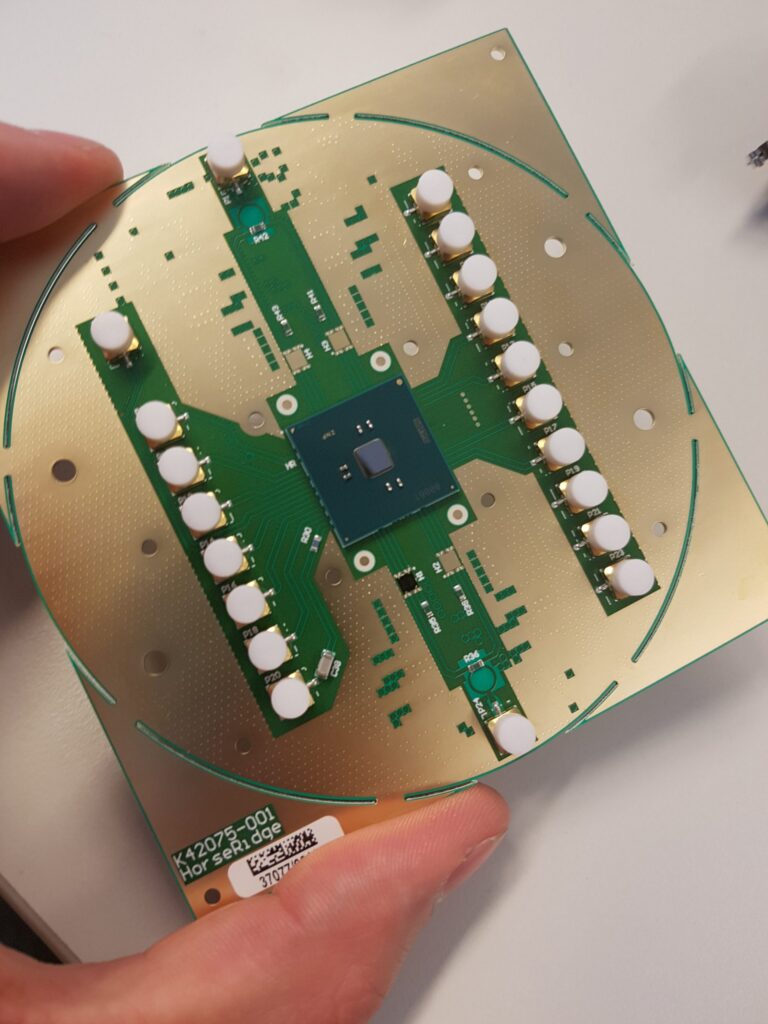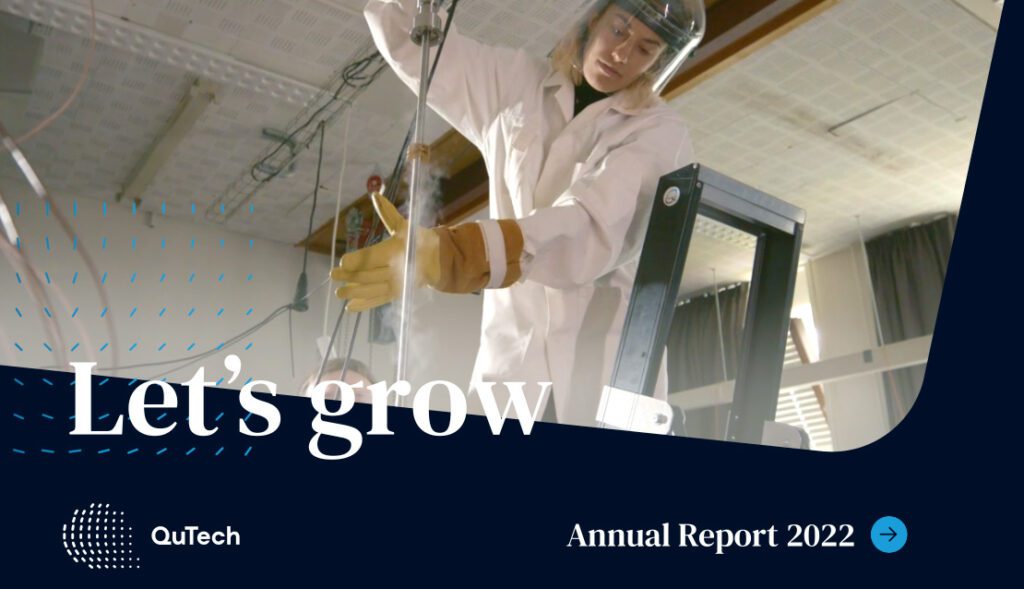11.07.2023Organization
QuTech and Intel renew their collaboration

Intel and QuTech have agreed to extend their successful alliance for the long term. Having worked together on quantum research since 2015, with significant groundbreaking achievements as a result, both parties have decided to continue their collaboration beyond 2025.
The collaboration between the two industry leaders has been a fruitful one. In the years that QuTech – a collaboration between TU Delft and TNO – and Intel have shared expertise, manpower and facilities, they achieved groundbreaking results. For example, scientists from Intel and QuTech produced the first industrially manufactured qubit within Intel’s computer chip manufacturing facilities. This novel research was published in Nature Electronics (2022).
Following multiple scientific achievements, the two have therefore decided to extend their partnership. After working together for nearly a decade, QuTech and Intel will next focus primarily on cryogenic complementary metal-oxide semiconductor electronics (cryo-CMOS) research, an emerging technology that could provide higher performance and lower power without changing the fabrication technology.

Intel’s Horse Ridge mounted on the board ready to be installed in the cryogenic refrigerator.
Cryogenic electronics breakthrough
Back in 2021, researchers and engineers from QuTech and Intel jointly designed and tested a cryogenic chip, Intel’s Horse Ridge research chip, that can control qubits that operate at extremely low temperatures. With the Horse Ridge breakthrough, it became possible to control qubits using electronic cryogenic chips. Furthermore, this technology also opened the door to solving the ‘wiring bottleneck,’ as quantum processors require electronic control and connecting a room-temperature controller requires many wires to run to the cryogenic chamber within the ‘fridge’. This hinders scalability. Cryogenic electronics, however, offer new solutions to address this problem. The results of this breakthrough were published in Nature and ISSCC.
The next legacy
As the collaboration moves into the next stage, the research will now focus on cryo-CMOS technology on Intel’s advanced processing technology. With this new focus, lead scientist Lieven Vandersypen passes on the reins to Fabio Sebastiano – who has been the lead researcher for the cryo-CMOS activities. Fabio notes that: “We have already achieved significant milestones during our collaboration with Intel, especially by demonstrating cryo-CMOS controllers for quantum processors. Still, major hurdles lie in scalable and practical quantum computers. With this ongoing collaboration, we will continue pushing the state-of-the-art of cryogenic electrical interfaces for scalable quantum computers by capitalizing on Delft’s expertise in cryogenic electronics and Intel’s capability to design and manufacture complex integrated circuits and SoCs.”
A new period of quantum advancements through collaboration has kicked off.

